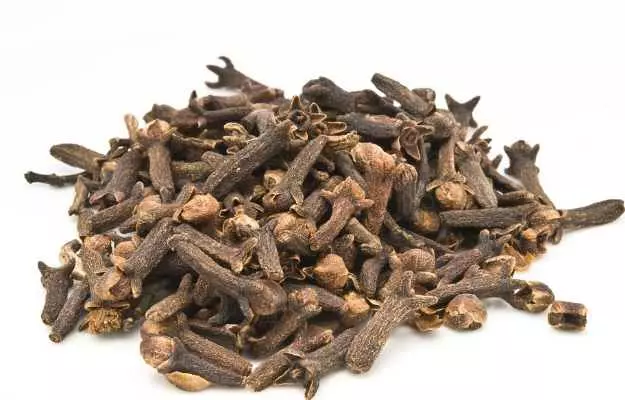Cloves are one of the most widely used spices in the world due to its availability in the market throughout the year. Clove is a tiny brown coloured spice, about 1 to 2-inch long and 1 to 4-inch in diameter with a narrow stem. It is known for a pleasant aroma and sharp taste. A clove is basically a flower bud of a tree and is commonly found on the islands in Indonesia, Maluku to be specific. Their commercial harvesting takes place in various parts of the world including India, Bangladesh, Pakistan, Sri Lanka, Madagascar, and Tanzania.
The word 'clove' is derived from the Latin word clavus, which means nail. The name refers to the nail-like shape of the clove as well as the size of clove buds Indonesia is the native place of cloves and now they are widely cultivated in East African regions. Clove is majorly consumed by the Asian countries. In fact, it has long since been used in Asian cultures. In 200 BC, Chinese courtiers would keep a clove in their mouths as a mouth freshener while addressing their emperor as a token of respect. Then in the 4th century, cloves were brought to Europe by Arab traders.
The exotic and spicy clove flavour can be easily identified in food items. Cloves also have a lot of medicinal uses. It is commonly used for curing toothaches and other dental related issues. All the parts of this plant including, leaves, dried flower buds, stems, and clove oil are used for making various medicines. Due to their strong aroma and nutritional properties, they are also used in the manufacturing of cosmetics, soaps, toothpaste and perfumes. 'Kreteks' are a type of clove cigarettes that are also available in the market.
Cloves can be grown indoors as well in temperate regions. They demand a specific type of humid tropical and subtropical climate to grow. Also, clove plant requires extensive care to grow and survive. Cloves provide a unique, warm and sweet taste to dishes like gingerbread and pumpkin pie. They also provide an addition to split pea and bean soups, baked beans and chilies. They can easily combat nasty odours in a household as their oils have freshening properties.
Some basic facts about cloves (laung):
- Scientific name: Syzygium aromaticum
- Family Name: Myrtaceae
- Common name: Clove in English, Laung in Hindi
- Sanskrit name: लवङ्गम् (Lavangam)
- Native Regional and geographical distribution: Cloves are native to the Moluccas Island of Indonesia. Asian countries have always been higher consumers of clove that too for more than 2,000 years. The traders of Arab brought cloves to Europe around the 4th century. The major cultivations have always been in Indonesia but today the lead is in the hands of East Africa, Zanzibar region. The commercial growth of cloves takes place in countries like India, West Indies, Sri Lanka, Madagascar, Pakistan, Pemba and Brazil.
- Interesting facts: For centuries, cloves have been one of the world's most valuable and expensive commodities due to their richness in taste and nutrition. In the 17th and 18th centuries, cloves were worth their weight in gold in Britain, because of the high prices for their import.




























